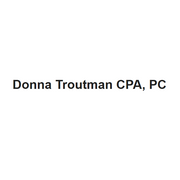What Businesses Want to Know About QuickBooks®

Whether you run a retail store, manage a restaurant, or conduct a home business, accounting plays a crucial role in the financial health of your company. Fortunately, if you want to simplify the process—and save money—you can streamline your accounting with the help of QuickBooks®. Produced by Intuit, this popular software can assist with nearly every aspect of financial management—including bookkeeping, payroll, and tax preparation. But while this software offers immense benefits, it does take some time to master. To help you learn more about this program, here are a few answers to frequently asked questions about QuickBooks.
FAQs About QuickBooks
What do you need to get started?
First, you’ll need to make sure you have a reliable computer with an updated operating system before you purchase and download the software. To simplify the setup process, have all your company information on hand—especially financial data and banking accounts. If you’re migrating from a previous system, use old forms to help organize your new data—such as invoices and payroll.
Since there are many aspects to QuickBooks that you’ll want to learn, it’s a good idea to hire a CPA to help navigate you through the process. With in-depth knowledge of this program, skilled accountants can guide you through set-up in a strategic order, as well as help answer any complex questions you may have along the way.
What kind of reports can QuickBooks produce?
 The program can produce a journal that details every debit and credit transaction of the company within a specific timeframe. Or, if you’re looking for a birds-eye view of your finances, QuickBooks can create a balance sheet that covers your total assets and owed monies. As you get more data put into the system, this software can also help produce general ledgers, account-specific transactions, growth charts, and more detailed reports.
The program can produce a journal that details every debit and credit transaction of the company within a specific timeframe. Or, if you’re looking for a birds-eye view of your finances, QuickBooks can create a balance sheet that covers your total assets and owed monies. As you get more data put into the system, this software can also help produce general ledgers, account-specific transactions, growth charts, and more detailed reports.
How does QuickBooks help with inventory?
Many business owners rely on QuickBooks for in-depth inventory management. Once your data is logged into the program, it can inform you of the items you have, sales and purchase data, and inventory valuation.
What happens when you delete your QuickBooks account?
In the event that you prefer to use a different financial tool, deleting your QuickBooks account won’t mean having to get rid of all your hard work. If you use QuickBooks Online, Intuit will store all of your data for up to one year after deleting, allowing you to have access to the numbers you need.
If you want to discover what QuickBooks can do for your company, turn to a QuickBooks Professional Advisor, Donna J. Troutman CPA PC. Serving small businesses in the Lewisburg, PA, area, this experienced CPA firm can walk you through the QuickBooks setup process and address technical concerns you may have. If you need additional support, this firm is also available to assist with accounting needs—such as payroll and tax preparation. For more details on these services, visit this provider online or call (570) 523-7337.
About the Business
Have a question? Ask the experts!
Send your question

